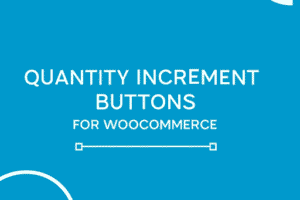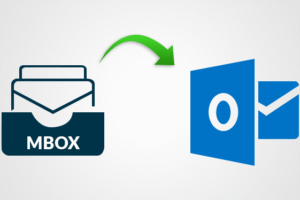As patient expectations evolve and regulatory requirements grow more complex, the need for seamless IT integration becomes critical. However, the path to effective digital healthcare is riddled with challenges that span technology, compliance, and communication. This is where consultants play a vital role—bridging the gap between IT and healthcare to deliver improved outcomes for providers and patients alike.
The Current Landscape of IT in Healthcare
Healthcare organisations today rely on a range of advanced technologies to enhance patient care and operational efficiency. Some of the most impactful include:
- Electronic Health Records (EHRs): Electronic Health Records digitise patient data, allowing faster access and improving care coordination across healthcare providers.
- Internet of Things (IoT): IoT devices monitor patients continuously, providing real-time health data to support timely interventions and better care management.
- Blockchain: Blockchain ensures secure, tamper-proof storage of sensitive health records, boosting trust and data integrity in healthcare systems.
Despite these advances, many healthcare providers struggle with integrating these tools effectively. Issues such as data silos, lack of interoperability, and inconsistent technology adoption remain major obstacles for healthcare IT consulting firms to address.
Common Gaps Between IT and Healthcare Systems
Several persistent gaps exist that hinder the full potential of IT in healthcare:
- Communication Barriers: IT professionals and healthcare workers often speak different ‘languages,’ leading to misunderstandings and inefficient workflows.
- Legacy Systems vs. Modern Solutions: Various healthcare companies continue to use out-of-date software that is difficult to integrate with modern technologies.
- Data Privacy and Regulatory Compliance: Ensuring compliance with laws like GDPR and HIPAA is challenging and requires constant vigilance.
- Lack of Tailored IT Strategies: Generic IT solutions may not address the unique demands of healthcare environments, resulting in suboptimal outcomes.
The Consultant’s Role in Bridging the Gap
- Facilitate Cross-Disciplinary Communication: Act as translators between clinicians, administrators, and IT teams to align goals and expectations.
- Design Customised Technology Roadmaps: Tailor IT strategies that reflect the specific needs and workflows of healthcare providers.
- Ensure Regulatory Compliance: Guide organisations through complex legal frameworks to protect patient data and maintain trust.
- Manage Change Effectively: Support the training and adoption processes, helping staff embrace new systems and workflows without disruption.
- Optimise IT Infrastructure: Recommend scalable, secure solutions that improve data sharing, accessibility, and security.

Key Skills and Expertise for IT-Healthcare Consultants
Consultants specialising in the intersection of IT and healthcare must possess a unique blend of skills:
- Technical Knowledge: Expertise in EHR systems, cloud computing, cybersecurity, and healthcare software ensures smooth, secure, and efficient tech solutions.
- Regulatory Expertise: Stay compliant with up-to-date knowledge of GDPR, HIPAA, and other healthcare regulations critical for protecting patient data privacy.
- Communication and Stakeholder Management: Skilled in communicating across teams, they effectively coordinate clinical staff, IT engineers, and stakeholders for seamless collaboration.
- Problem-Solving and Strategic Planning: Strong problem-solving and strategic planning abilities help identify issues and deliver sustainable solutions aligned with healthcare goals.
- Project Management: Proven project management skills to lead healthcare IT projects from initial concept, through deployment, to ongoing maintenance and support.
IT-Healthcare Consulting Interventions
Implementing Interoperable EHR Systems
One healthcare provider struggled with fragmented patient records across multiple departments. An IT healthcare consulting firm assessed the legacy systems and designed an interoperable EHR solution that unified patient data, improved information access, and reduced errors. This resulted in faster patient diagnosis and better coordinated care.
Enhancing Cybersecurity Posture
A hospital network faced increasing cyber threats targeting its sensitive data. Consultants performed comprehensive risk assessments and implemented robust cybersecurity frameworks tailored to healthcare. This protected patient data, ensured regulatory compliance, and boosted patient confidence in the hospital’s digital systems.
Leveraging Telehealth Technology
During the pandemic, many clinics needed to expand their remote care capabilities rapidly. Consultants helped deploy telehealth platforms integrated with existing systems, providing clinicians with seamless access to patient histories and enabling virtual consultations without compromising data security.
Future Trends at the Intersection of IT and Healthcare
The future of healthcare IT consulting looks promising, with several emerging trends likely to shape the landscape:
- AI-Driven Diagnostics and Personalised Medicine: AI algorithms will increasingly support clinical decisions, offering predictive insights tailored to individual patients.
- Cloud Computing and Data Analytics: Healthcare organisations will continue moving to the cloud for scalable data storage and real-time analytics, enabling more informed decision-making.
- Patient-Centric Digital Experiences: From mobile apps to wearable devices, patients will have greater control and engagement in their health journeys.
- Continuous Innovation Through Consulting: Consultants will play a critical role in helping healthcare providers stay agile and adopt cutting-edge technologies responsibly.
Choosing the Right Healthcare IT Consulting Firms
- Industry Experience: Choose firms with extensive healthcare IT experience and a history of delivering successful projects that meet industry demands.
- Compliance Focus: Ensure the company deeply understands healthcare data regulations and prioritises compliance to safeguard sensitive patient information.
- Customisation Ability: Look for providers offering customised IT solutions that are specifically designed to meet the unique needs of your healthcare organisation.
- Support Services: Ongoing support and comprehensive training from the firm are essential to maintain system efficiency and empower your staff long-term.
- Technology Partnerships: Prefer firms partnered with top IT vendors, as they can offer advanced technology solutions that keep your healthcare systems ahead.
Why Localised IT Support is Important: IT Support in Hertfordshire
Having dedicated IT support local to healthcare providers offers significant advantages. For example, IT support in Hertfordshire can deliver rapid onsite assistance, personalised services, and a deeper understanding of the local healthcare environment. This proximity ensures that technology issues are resolved quickly, minimising downtime and maintaining the quality of patient care.
Conclusion
Bridging the gap between IT and healthcare requires specialised knowledge, strategic vision, and a collaborative approach. Healthcare IT consulting firms have become indispensable in guiding organisations through this complex terrain, helping to enhance patient outcomes and streamline operations. For healthcare providers seeking reliable IT support in Hertfordshire and beyond, consultancy services offer tailored solutions that align technology with clinical needs. Renaissance Computer Services Limited exemplifies this approach by delivering expert consultancy and support, enabling healthcare organisations to future-proof their IT infrastructure while ensuring compliance and efficiency.





